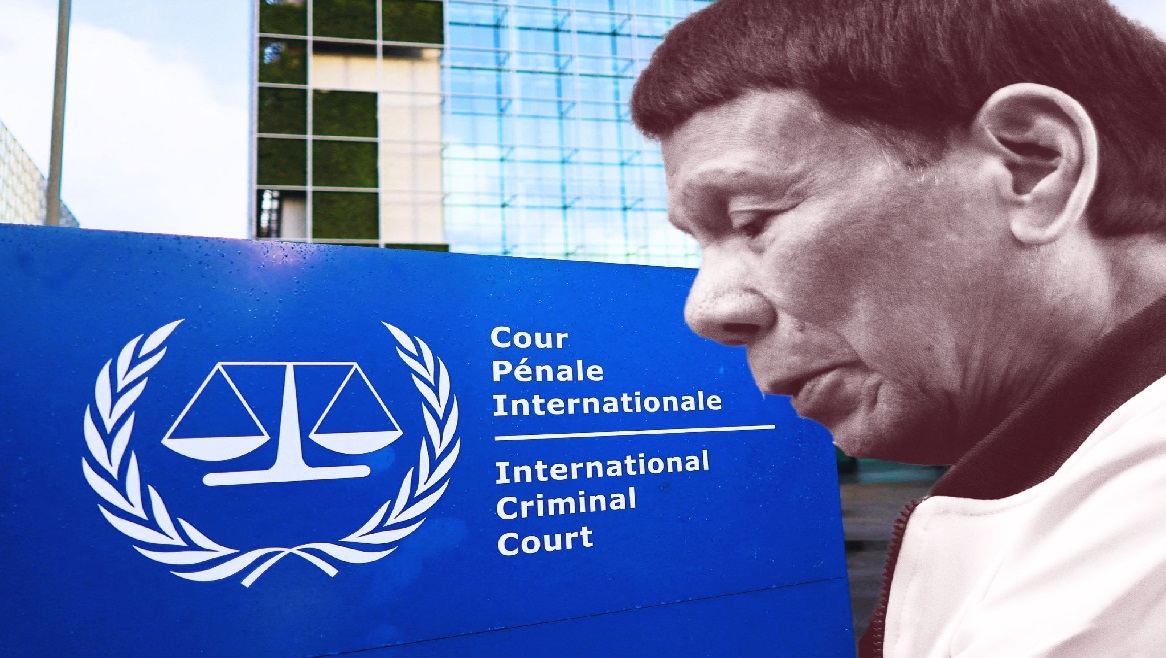ICC judge in Duterte case among those targeted by sanctions from Trump Administration
ICC judge in Duterte case among those targeted by sanctions from Trump Administration

The U.S. State Department announced Thursday that it has imposed sanctions on four judges of the International Criminal Court (ICC), a move aimed at penalizing the court for authorizing investigations into U.S. troops and issuing arrest warrants for foreign leaders. Among those sanctioned is ICC Judge Reine Adelaide Sophie Alapini Gansou of Benin, who is part of the chamber overseeing former Philippine President Rodrigo Duterte’s case.
According to a statement issued by Secretary of State Marco Rubio, the four judges—Solomy Balungi Bossa (Uganda), Luz del Carmen Ibanez Carranza (Peru), Reine Alapini Gansou (Benin), and Beti Hohler (Slovenia)—“have actively engaged in the ICC’s illegitimate and baseless actions targeting America or our close ally, Israel.” Rubio accused the court of being “politicized” and of asserting “unfettered discretion to investigate, charge, and prosecute nationals of the United States and our allies.”
Sanctions Target Judges Over U.S. and Israeli Investigations
The sanctions stem from two separate ICC actions. In March 2020, ICC judges authorized a formal investigation into alleged war crimes by U.S. troops in Afghanistan, despite the court later shifting its focus to crimes by the Afghan government and the Taliban. More recently, in November 2024, the ICC judges issued arrest warrants for Israeli Prime Minister Benjamin Netanyahu and former defense minister Yoav Gallant over alleged war crimes and crimes against humanity during the Gaza conflict. Judges Alapini Gansou and Hohler voted to approve those warrants, a decision the U.S. labeled “politically motivated.”
Under the sanctions, the four judges’ U.S.-based assets are frozen, and most American individuals and entities are barred from conducting financial transactions with them. A general license allows banks to wind down existing transactions through July 8, provided that any redirected funds are held in blocked, interest-bearing accounts in the United States.
Judge in Duterte Case Draws Special Attention
Among the sanctioned judges, Alapini Gansou has attracted particular scrutiny because of her role in the preliminary stages of the ICC’s case against Duterte. The former Philippine president faces charges of crimes against humanity related to his administration’s “war on drugs,” which led to thousands of fatalities. Legal representatives for Duterte had previously requested Alapini Gansou’s disqualification, citing perceived bias. While that challenge was pending, the U.S. sanctions intensified pressure on the chamber handling the case.
ICC Responds, Defends Judicial Independence
The ICC’s presidency swiftly condemned the U.S. action as an attack on the independence of an international judicial institution. In a statement released Thursday, the court’s leadership described the sanctions as an “attempt to undermine the ICC’s critical role in delivering justice to victims of the world’s gravest atrocities.” The ICC presidency also noted that such interference “sets a dangerous precedent” and may hamper ongoing investigations and prosecutions of genocide, war crimes, and crimes against humanity.
Human-rights advocates echoed the court’s concerns. Liz Evenson, international justice director at Human Rights Watch, characterized the sanctions as a “flagrant attack on the rule of law at the same time as President Trump is working to undercut it at home.” She warned that restricting judges’ financial transactions could “chill” their willingness to issue future warrants or pursue sensitive cases involving powerful nations.
Historical Context and Earlier U.S. Measures
This is not the first time Washington has targeted ICC officials. In September 2020, then–Secretary of State Mike Pompeo announced sanctions against then-ICC Prosecutor Fatou Bensouda and one of her senior aides, citing the Afghanistan investigation. The U.S. also withdrew its signature from the Rome Statute in 2002, repeatedly denouncing the court as a threat to U.S. sovereignty, and has enacted “blocking statutes” that restrict cooperation with ICC inquiries.
Karim Khan, who succeeded Bensouda as prosecutor, temporarily stepped aside last month amid a separate U.N. inquiry into allegations of sexual misconduct. Khan’s recusal compounded the court’s difficulties, as it was already coping with the fallout from U.S. financial penalties. These developments underscore the growing tension between the ICC and the U.S. government, which remains one of the world’s most influential non-member states.
Impact on Future ICC Proceedings
Legal experts caution that targeting an ICC judge’s personal finances could undermine judicial independence. Although the Rome Statute provides disciplinary procedures within the court—allowing chambers to remove or discipline judges for misconduct—it does not shield them from external punitive measures. As a result, judges may face a dilemma: pursue evidence-based rulings that run counter to powerful states’ interests or risk personal and professional repercussions.
Moreover, ICC judges frequently rely on member states to execute arrest warrants, as the court lacks its own enforcement arm. When U.S. sanctions threaten to complicate logistical or financial arrangements—such as international travel, lodging, or legal assistance—an ICC judge may be less inclined to pursue controversial warrants, especially against nationals of powerful countries.
Looking Ahead: ICC’s Role Remains Crucial
Despite political headwinds, the ICC continues to investigate conflicts in Ukraine, Sudan, Myanmar, the Philippines, and Venezuela. Last year, it issued an arrest warrant for Russian President Vladimir Putin over allegations of unlawfully transferring Ukrainian children to Russia, although both Russia and Ukraine deny ICC jurisdiction. In Gaza, the court’s investigators have collected evidence of alleged crimes by all parties to the conflict.
While the sanctions represent a significant challenge to the court’s independence, international legal scholars argue that the ICC’s mandate remains indispensable for holding perpetrators accountable. “Even though the United States is not a member,” notes Professor Daryl Brown of Georgetown University Law Center, “the ICC’s ability to scrutinize crimes with global ramifications is essential for victims’ access to justice.”
As the ICC responds to mounting pressure from the U.S., its judges and prosecutors will face critical decisions about whether to maintain their investigative pace or adjust strategies to navigate geopolitical risks. Ultimately, the sanctioned ICC judges remain committed to the precedent that no individual, regardless of office or influence, is beyond the reach of international justice.
